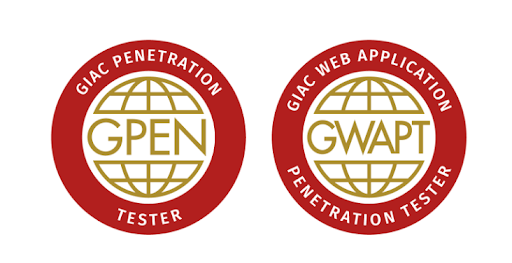Certified Penetration Testing
Upskilling Course, 80 Academic Hours
Comprehensive Cybersecurity Training with an Offensive Security Focus
- Level: Intermediate
To protect computer networks and digital assets, you sometimes need to be on the offense, and try penetrating them to uncover vulnerabilities. This comprehensive cybersecurity training course focuses on various aspects of offensive security. It covers infrastructure, application, and wireless security penetration test methods and techniques that can help build a career in cybersecurity in the fields of system pentesting, infrastructure pentesting, cybersecurity, web application pentesting, and cyber operations.
By enrolling in this course, you'll explore all the avenues of penetration testing, gaining a competitive edge and developing the capabilities to perform various security assessments seamlessly.
Who Is This Course For?
- Security analysts
- Network and security engineers
- Ethical hackers
- IT managers
- Cyber investigators
- Penetration testers
- Vulnerability assessors
Prerequisites
- Knowledge of TCP/IP
- Basic knowledge of Windows and Linux command lines

Learning Objectives
- Understanding the essentials of computer networks and architecture
- Leveraging Linux for ethical hacking practices
- Learning about privacy and anonymity
- Familiarization with Open-Source Intelligence (OSINT)
- Advanced protocol enumerations and scanning
- Identifying and assessing vulnerabilities
- Cracking passwords and secure access
- Hacking organizational systems, networks, and applications
- Evaluating post-exploitations
- Inspecting packets precisely
- Performing active sniffing attacks
What You'll Get...
- Course presentation as a PDF file
- Cheat sheets and useful documentation
- “Swiss Army Knife” - 3Gb of IR tools
- 42 hours of practical learning experience through hands-on activities
- A Wawiwa certificate upon successful completion of the course
In addition, you may choose to augment your team’s course to include preparation for relevant cybersecurity industry certification tests, at an additional cost. The cybersecurity certifications that this course can be used to prepare for include: GIAC Penetration Tester (GPEN) with CyberLive and GIAC Web Application Penetration Tester (GWAPT).

Relevant Cybersecurity certifications
Note: An industry certification is neither offered nor guaranteed as part of the course.
Professional Supervisor and Instructors
Supervising all Wawiwa Cyber courses is Mr. Nadav Nachmias, Head of Cybersecurity Programs at Wawiwa.
The course instructors are cybersecurity professionals with hands-on experience as well as training skills. The technical level of the course can be adjusted according to the audience.

Nadav Nachmias
Head of Cybersecurity Programs

Nadav is a Cybersecurity Specialist with over 15 years of experience, focusing on Cybersecurity strategies, architecture, and workforce empowerment. His practical experience made it intuitive for him to develop diverse training programs and materials in several Cybersecurity fields (including Cybersecurity Management, Incident Handling and Response, and Cyber Forensics).

What Do Graduates Have to Say?

Course Syllabus
Module 1: Getting Started with Fundamentals (6 Theoretical Hours, 5 Practical Hours)
- What is Information Security?
- CIA Triad
- Authentication, Authorization, and Accounting (AAA)
- Hacking Phases
- Ethical Hacking Concepts
- Understanding Common Hacking Terms
- Vulnerability Assessment
- Penetration Testing
- Concept of Red Teaming/Blue Teaming
- Information Security Controls and Policies
- OS and Network Basics
- Kali Linux
Module 2: Information Gathering Best Practices (7 Theoretical Hours, 8 Practical Hours)
- Footprinting
- Reconnaissance
- Intelligence Gathering
- Google Dorking
- Shodan
- Public Information and Information Leakage DNS
- Analysis and DNS Brute Forcing
- Discover Network Hosts
- Port Scanning
- Enumerate Listening Services
- Discover Vulnerable Attack Surfaces
Module 3: – Network and Infrastructure Penetration Testing (10 Theoretical Hours, 14 Practical Hours)
- Focused Penetration Testing
- Compromise Vulnerable Hosts
- Exploiting Missing Software Patches
- Using Metasploit to Exploit an Unpatched System
- Using the Meterpreter Shell Payload
- Generating Custom Shellcode for Exploit-DB Exploits
- Deploy Custom Executable Payloads
- Access Remote Management Interface
- DOS Attack Penetration Testing
- Sniffing and Spoofing
- Intrusion Detection System
- Firewall
- Network Device Security Audit
- Post-Exploitation and Privilege Escalation
- Harvesting Credentials from .dot Files
- Tunneling through SSH Connections
- Automating SSH Pubkey Authentication with Bash
- Scheduling a Reverse Callback Using Cron
- Escalating Privileges with SUID Binaries
- Maintaining Persistent Meterpreter Access
- Harvesting Domain-Cached Credentials
- Extracting Clear-Text Credentials from Memory
- Searching the Filesystem for Credentials in Configuration Files
- Using Pass-the-Hash to Move Laterally
Module 4: Web Application Pentesting (10 Theoretical Hours, 9 Practical Hours)
- Web Basics
- Basic Concepts of Web Applications, Working Principles
- HTML Basics
- Difference Between Static and Dynamic Websites
- Understanding HTTP Protocols
- Intro to Representational State Transfer (REST)
- HTTP Request and Response Headers
- What Is a Cookie?
- HTTP Proxy
- Server and Client Side with Example
- What Is a Session?
- Different Types of Encoding
- Web Application Penetration Testing Tools
- DirBuster
- Wfuzz
- Nikto
- wpscan
- Burp Suite
- Proxy Module
- Target and Spider Module
- Intruder Attack Types and Payload Settings
- Repeater Module
- Sequencer and Scanner Module
- Common Website Security Attacks
- Injection
- Broken Authentication and Session Management
- Cross-Site Scripting
- Insecure Direct Object Reference
- Security Misconfiguration
- Sensitive Data Exposure
- Missing Functional Level Access Controls
- Cross-Site Request Forgery
- Using Components with Known Vulnerabilities
- Unvalidated Redirects and Forwards
- XML External Entities
- A Closer Look at the 10 Ten Owasp Vulnerabilities
- Database Attacks
- SQL Injection
- Error-Based Injection
- Double Query Injection
- Boolean-Based Blind Injection
- Time-Based Blind Injection
- Dumping DB Using SQLMap
Module 5: Wireless Pentest (3 Theoretical Hours, 3 Practical Hours)
- Wireless Security Overview
- Introduction to the 802.11 Standard
- Aircrack-ng Kungfu
- EvilTwin Attack
- Wireless Security Tools
- Best Practices for Wireless and Wireless Enterprise Security
Module 6: Post-Engagement Cleanup (2 Theoretical Hours, 3 Practical Hours)
- Killing Active Shell Connections
- Removing Unnecessary User Accounts
- Deleting Miscellaneous Files
- Reversing Configuration Changes
- Closing Backdoors
Give your team the edge they need to succeed with our comprehensive courses, tailored to your specific needs.
Interested in more details?
We’d be happy to answer all your questions!
